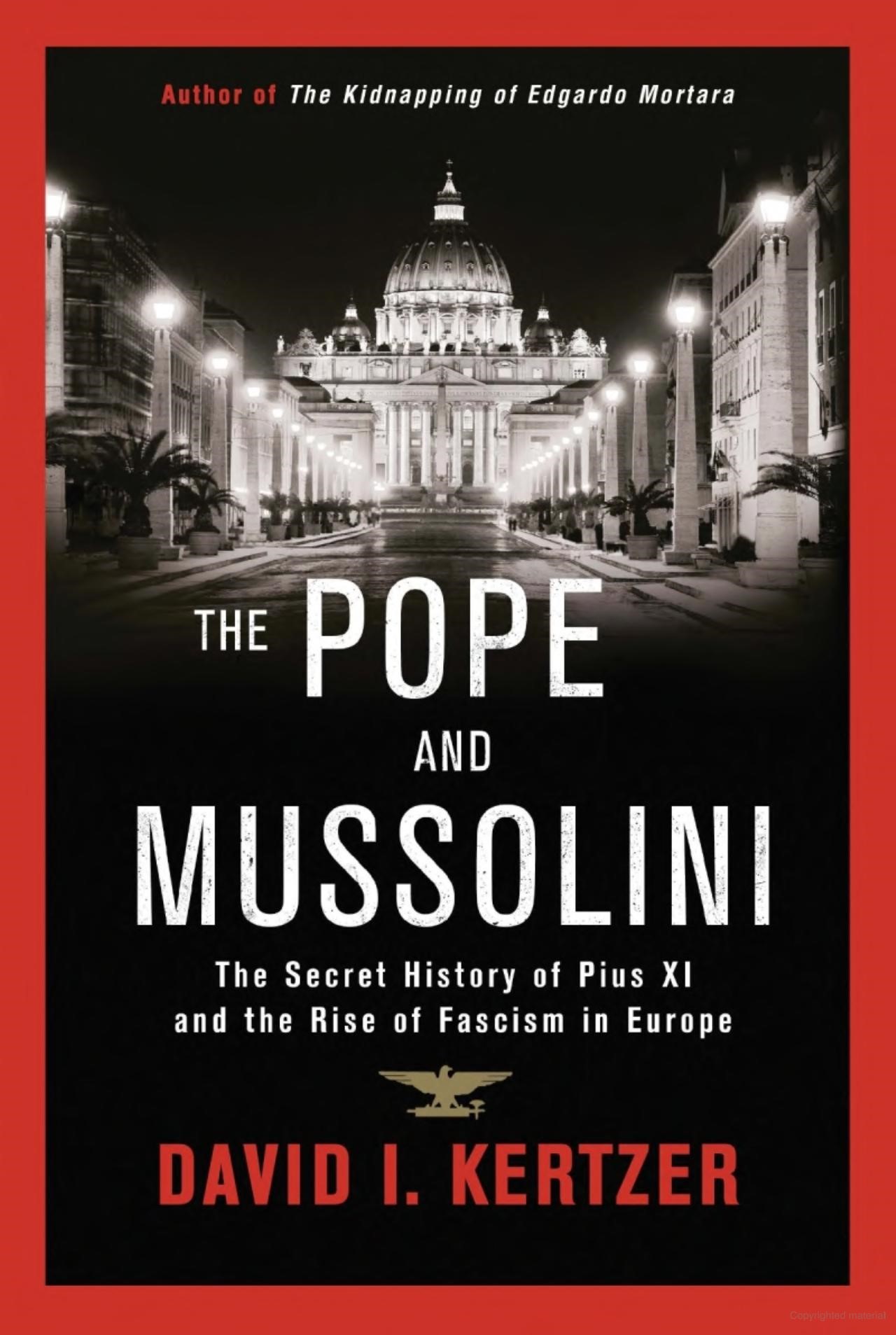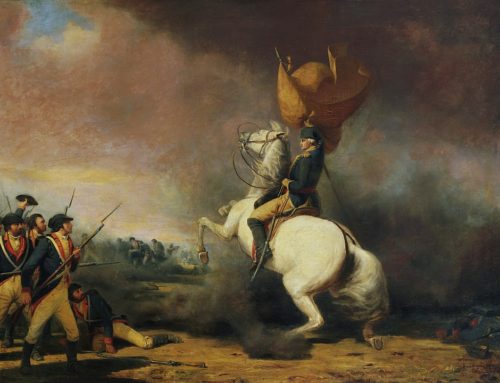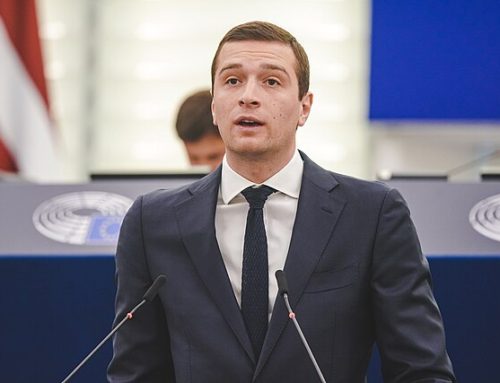The Pope and Mussolini: The Secret History of Pius XI and the Rise of Fascism in Europe
by David I. Kertzer
David Kertzer provided a wonderful overview not only about the complex relationship between Pope Pius XI and Mussolini but the meaningful insights into the political environment of that era.
The relationship between Pope Pius XI and Benito Mussolini, the Italian fascist dictator, represented a complex interplay of ideology, pragmatism, and mutual benefit, underscored by significant ideological conflicts. Despite their differences, the Vatican and Mussolini’s regime collaborated in ways that altered Italy’s political and religious landscape and set a precedent for church-state relations under fascism.
During the twenty years when their rules overlapped, Pope Pius XI and Mussolini only met once or twice. Their communication was through underlings.
Neither Pope Pius XI nor Mussolini believed in democracy. To the extent that they cooperated, it was a reaction of their shared concern over the growing threat of communism.
Pope Pius XI was antagonistic toward “modernism.” He opposed “free masons,” Protestants, immodest dress of women, and Jews. He repeatedly reproached Mussolini on these issues. Until Pope John XXIII, the Catholic Church looked askance at any non-Catholic religion.
The Church did not change its discriminatory positions until the reign of Pope John XXIII.
Pope John XXIII, born Angelo Giuseppe Roncalli, is widely celebrated for his commitment to promoting openness, tolerance, and acceptance of other faiths during his papacy from 1958 to 1963. His revolutionary approach to interfaith relations marked a significant departure from the Catholic Church’s historical attitudes toward other religions, setting a foundation for modern interfaith dialogue. Pope John XXIII’s legacy lies in his efforts to foster mutual respect among different faiths, especially through his initiation of the Second Vatican Council, his profound reforms in liturgy, and his contributions to social justice and peace, which profoundly altered the Church’s relationship with the world.
Pope John XXIII, having served much of his career overseas in non-Catholic countries, accepted the legitimacy of alternative faiths.
While Pope Pius XI trusted Italian Jews (about 1% of Italy’s population), he had grave reservations about the large Jewish populations of Eastern Europe, feeling that they posed a Communist menace.
Catholic press claimed that the Communist rulers of Russia were almost entirely Jewish when in reality they had few positions. Pope Pius XI also condemned the anti-clerical biases of Mussolini’s key advisors.
Mussolini in turn had to balance his need for Catholic support and the historical antagonism of the secular Italian political regime toward the Church. The friction was so great that from 1870, when Italy was unified, until the concordat in 1929, the Pope never left Vatican grounds.
Background and Initial Tensions
Upon his election in 1922, Pope Pius XI (Achille Ratti) faced a unique situation in Italy, where a secular liberal government had dominated since the unification in the 19th century. The Catholic Church had long felt marginalized, especially after the Papal States were seized in 1870, and the Vatican lost its temporal power. Mussolini, too, had just risen to power in 1922, promising to restore Italian greatness and addressing the deep-seated divisions in Italian society. However, Mussolini’s early political views included strong anti-clerical sentiments, and the fascist movement he led was rooted in nationalism and secularism, initially wary of religious influence in politics.
Pope Pius XI was initially cautious about Mussolini, but he recognized an opportunity in Mussolini’s pragmatic desire to solidify his political control, which included seeking support from the Catholic Church. This set the stage for cooperation driven by mutual benefit rather than ideological compatibility.
The Lateran Accords and the Establishment of the Vatican City
The pivotal moment in the relationship between Pope Pius XI and Mussolini was the signing of the Lateran Accords in 1929, a set of agreements that formally ended the so-called “Roman Question.” These accords consisted of three parts: a political treaty recognizing the Vatican City as an independent sovereign state; a concordat regulating church-state relations; and a financial settlement compensating the Vatican for its territorial losses in the 19th century. For Pope Pius XI, this was a monumental achievement: the church regained sovereignty, was granted financial compensation, and was allowed a greater role in Italian education and society.
Mussolini, in return, received the endorsement of the Catholic Church, an invaluable asset in solidifying his regime. The Catholic Church’s support lent a moral and traditional authority to fascism in Italy and Mussolini was lauded as “the man sent by Providence.” The agreement aligned with his agenda to unify Italy under his rule, and he strategically positioned himself as a protector of Catholic values.
Ideological Clashes and Limits of Cooperation
However, the relationship was not without friction. Pope Pius XI and Mussolini had fundamental ideological disagreements, especially concerning fascist policies that undermined Catholic teachings. Mussolini’s regime encouraged youth movements that aimed to instill fascist values, challenging Catholic influence on Italian youth. The church also disapproved of Mussolini’s state monopoly over marriage, family, and social welfare.
Despite the Lateran Accords, Pope Pius XI often criticized fascist actions that encroached upon the autonomy of the church and the principles of Catholicism. Tensions further intensified in the 1930s, particularly with Mussolini’s alliance with Nazi Germany and the implementation of anti-Semitic laws, which Pope Pius XI strongly opposed. In his encyclical Mit brennender Sorge (1937), Pope Pius XI condemned racism and totalitarianism, veiled criticisms aimed at fascist and Nazi ideologies. Although the encyclical focused on Germany, its sentiments resonated with Italian Catholics uneasy about Mussolini’s increasing embrace of authoritarian policies.
Pope Pius XI near the end of his life was concerned over the growing alliance between Hitler and Mussolini. He deplored Hitler’s vicious treatment of Jews, his promotion of “paganism” at the expense of Christianity, and his military ambitions. He correctly predicted that the alliance between Mussolini and Hitler would in the long run be catastrophic for Italy.
The Legacy of Pope Pius XI and Mussolini’s Collaboration
Pope Pius XI’s approach to Mussolini remains controversial. On one hand, he secured significant gains for the Catholic Church in Italy, reaffirming its spiritual and social influence. On the other hand, his alliance with Mussolini’s regime indirectly strengthened an authoritarian government that would lead Italy into a period of increased oppression and war. The Lateran Accords legitimized Mussolini’s regime, cementing the role of the church in Italian politics but at the cost of aligning, however indirectly, with fascism.
In retrospect, the Pope Pius XI-Mussolini relationship reveals the complexities of church-state dynamics under totalitarianism, where pragmatic alliances can carry unintended consequences. Although Pope Pius XI sought to protect and expand Catholic influence, the alliance had a lasting impact, both strengthening the Italian state’s authority and complicating the Vatican’s moral standing during an era of political upheaval.
Under Pope Pius XII, the Vatican never condemned fascism. Instead, they focused their antagonism on Communism. Pope Pius XII, unlike his predecessor, tolerated Hitler.




